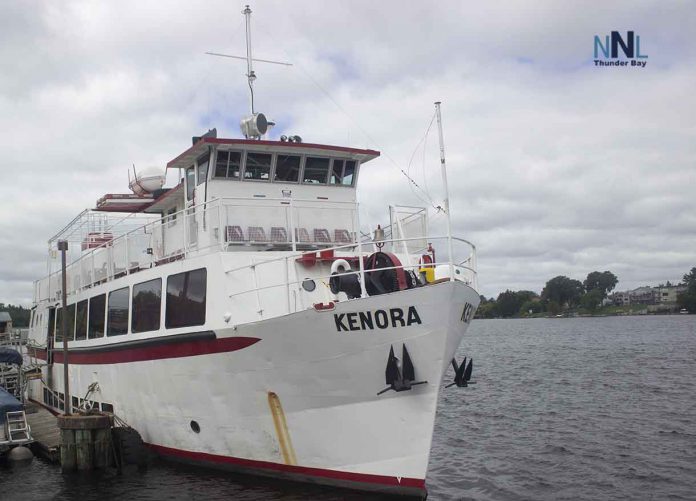Sioux Lookout, ON – The municipalities of Kenora, Sioux Lookout, and Pickle Lake estimate that since 2015, they have collectively paid out over $30 million dollars more than they should have for the day-to-day services of the Ontario Provincial Police (OPP). That is about $4 million dollars annually that these municipalities could have invested in critical infrastructure needs, such as bridges, roads, drainage, water and sewer infrastructure and recreation facilities and services.
“We pay twice,” said Daniel Reynard, mayor of Kenora. “First, we pay the highest cost of local policing in Ontario, then we pay again in lost opportunities to invest in our communities. The tax dollars of our residents and businesses don’t go nearly as far as they could.”
Outside its core, Kenora has mostly gravel roads and in times of severe flooding, these roads drain poorly and compound the affects of heavy winter run-offs and rising water levels in local lakes, rivers, and streams.
“One out of every four municipal tax dollars goes out of the community to pay for OPP policing services.” Reynard said, “That’s not fair. It’s not equitable, and we owe it to our taxpayers to fix this.”
The municipalities of Kenora, Pickle Lake, and Sioux Lookout formed a coalition to address the significant costs of providing police services in their respective communities. They will be asking the new provincial government to change its 8-year-old cost-formula for OPP-provided police services. The formula is based on cost per property but does not reflect that each of three communities are hubs for much larger populations. In total, the municipalities, in terms of policing costs, are paying for twice as many people as their tax bases ought to support. This is putting a strain on critical areas of municipal spending.
“While deteriorating roads are most visible, it is water and sewer infrastructure that needs our attention, and quickly,” said Doug Lawrance, mayor of Sioux Lookout. “Day-to-day it is working fine, but we need to replace outdated infrastructure. Our taxpayers rightly expect us to address problems like these before they become serious issues, but our extraordinarily high cost of policing makes these investments difficult.”
Pickle Lake is at the end of Ontario’s most northern permanent road and the beginning of a winter ice road network for thousands of Indigenous people. It has a population of 398, but consistently serves thousands more transient workers and visitors.
“Any increase in policing costs sends a ripple of financial disruption through our municipality,” says Kayla Blakney, deputy mayor of Pickle Lake. “Infrastructure investments are easy to put off, as most of them are unseen. But that is not sustainable. As responsible elected officials, we have an obligation to make this right.”







